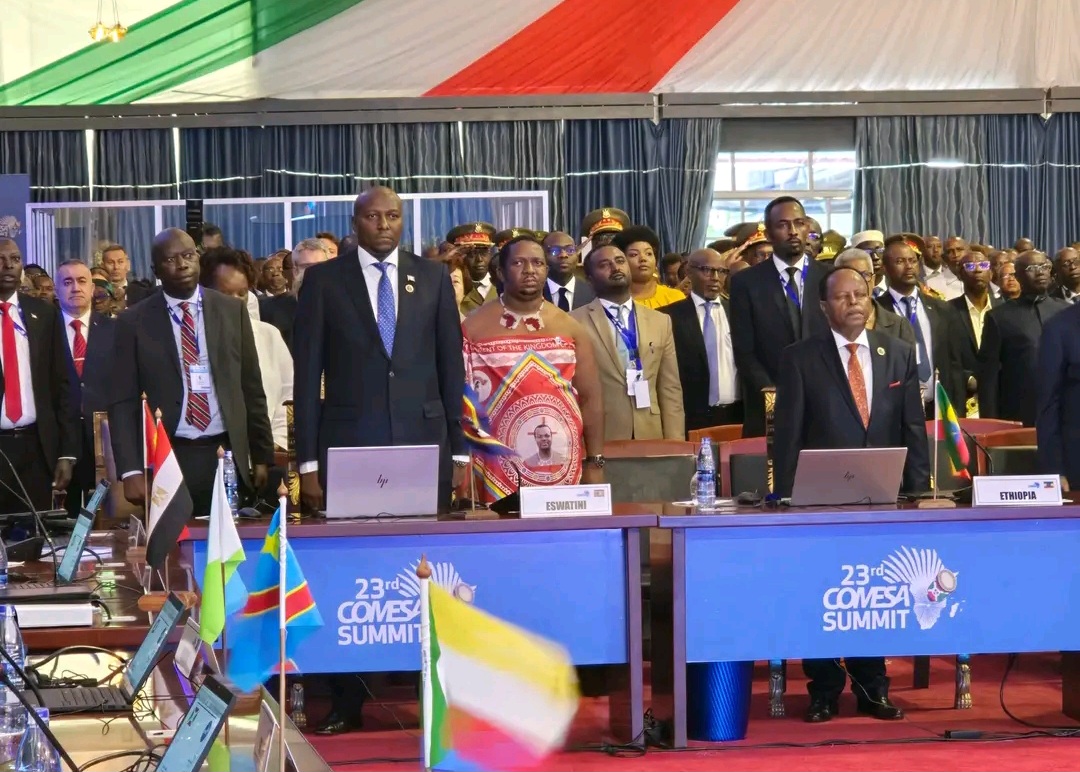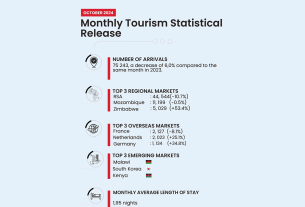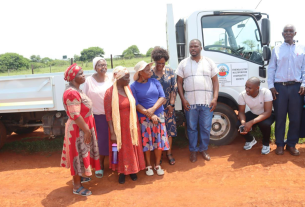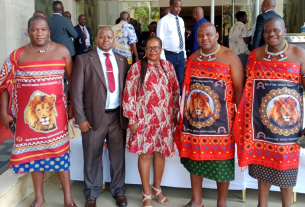BY MBONO MDLULI
MBABANE – Prime Minister Russell Mmiso Dlamini has announced a national mining company that will ensure responsible partnerships in the mining sector.
Making his remarks today (Thursday, October 31, 2024) during the 23rd COMESA Summit held in Bujumbura, Burundi, the premier emphasised on the importance of processing mined products within the borders where the minerals were extracted. The prime minister said this approach not only maximised economic benefits, but also fostered job creation and skill development within the home country where the minerals were mined.
“We are excited to announce the establishment of a national mining company that will act as a gateway for responsible partnerships and substantial investments, amplifying our shared commitment to sustainable, community-centered mining within COMESA,” the prime minister said.
He said Eswatini was committed to ensuring that the country’s natural resources truly serve its people. In the mining sector, this meant prioritising the beneficiation and processing of minerals within Eswatini’s borders, rather than exporting raw materials.
Tourism
Regarding the tourism sector, the prime minister said Eswatini’s unique cultural heritage and biodiversity held tremendous potential to captivate the world. To unlock this, however, the premier said there was a need to address structural gaps in accessibility, particularly in the area of transport and logistics.
Developing tourism meant making Eswatini’s sites appealing and easily reachable, which required direct flights from established global travel hubs and a more flexible visa regime to welcome more visitors. Within the COMESA region, the PM stated that collective steps like harmonising visa requirements, promoting and strengthening regional travel could transform the region’s individual destinations into a unified, sought-after tourism corridor. “This vision supports our shared aim to build resilient, climate-conscious tourism industries that empower local communities and drive sustainable economic growth,” he said.
Agriculture
For Eswatini, the premier said agriculture had long been a fundamental sector, sustaining the nation and driving economic growth. However, as climate change affected rainfall patterns, crop yields, and food security, Eswatini implemented adaptive measures to strengthen climate resilience.
“We believe in moving beyond subsistence farming by encouraging commercial agriculture, in particular contract farming of high-value crops that embraces climate-smart solutions, including water-efficient irrigation systems and sustainable farming practices,” he said.
To further enhance agricultural resilience, the prime minster said Eswatini recognised the value of regional cooperation. By collaborating with COMESA Member States, Dlamini believed Eswatini could expand access to climatetolerant crop varieties and improve cross-border trade for agricultural products.
He said the development of a regional agricultural value chain can link producers to broader markets, stimulate agribusiness, and ultimately improve food security across the COMESA region. “For Eswatini, this approach aligns with our aim to transform agriculture into a driver of rural development and poverty reduction,” he said.
“Nkwe”
Dlamini told his fellow attendants of the summit that in Eswatini, the people were guided by the principle of “Nkwe”—an ethos of running quickly to implement and expedite impactful change. He said this spirit of urgency aligned perfectly with COMESA’s mission to fast-track integration and realise shared goals swiftly and effectively.
“We hope to inspire the same momentum within COMESA, emphasising that timely action and collaborative efforts are essential for regional resilience and prosperity. With this collective resolve, we are confident that our ambitions will transition from plans to meaningful impact for our nations,” Dlamini stated.
Investment
Dlamini highlighted that Eswatini was primed for investment, with opportunities across key sectors that positioned Emaswati as a strategic entry point into the wider COMESA and African markets. He said Emaswati had worked to create an enabling environment, equipped with targeted reforms and support structures, to welcome investors who shared the country’s vision for sustainable growth.
“By partnering with us, investors can not only benefit from a market ripe with potential, but also contribute to the transformative journey of Eswatini and the COMESA region. Our doors are open to partners who see Africa’s promise and are eager to help us realise our shared dreams of economic advancement and regional integration,” he said.
Peace
Dlamini reminded the attendants that the foundation of all these ambitions, however, lied in peace and stability. Without them, their shared vision for robust trade, economic growth, and development within COMESA could not be realised. He viewed peace and stability as components that created the confidence that encouraged investment, allowed businesses to thrive, and facilitated the free movement of goods and people across the COMESA countries’ borders.
He mentioned that Eswatini was committed to maintaining and promoting peace within its borders and throughout the region because Emaswati understood that sustainable development depended on it. “As a bloc, we must prioritise collaborative peace-building efforts, ensure strong governance, and work actively to resolve conflicts, as only then can we cultivate an environment where trade and economic progress flourish,” he said.
In his speech, the premier thanked Burundi and its people for hosting the summit and thanked Zambia and its natives for playing an important role during their time as chair of COMESA. Dlamini, at the start of his speech, extended warm greetings from His Majesty King Mswati III and all Emaswati and stated that they wished for the summit to be fruitful.








